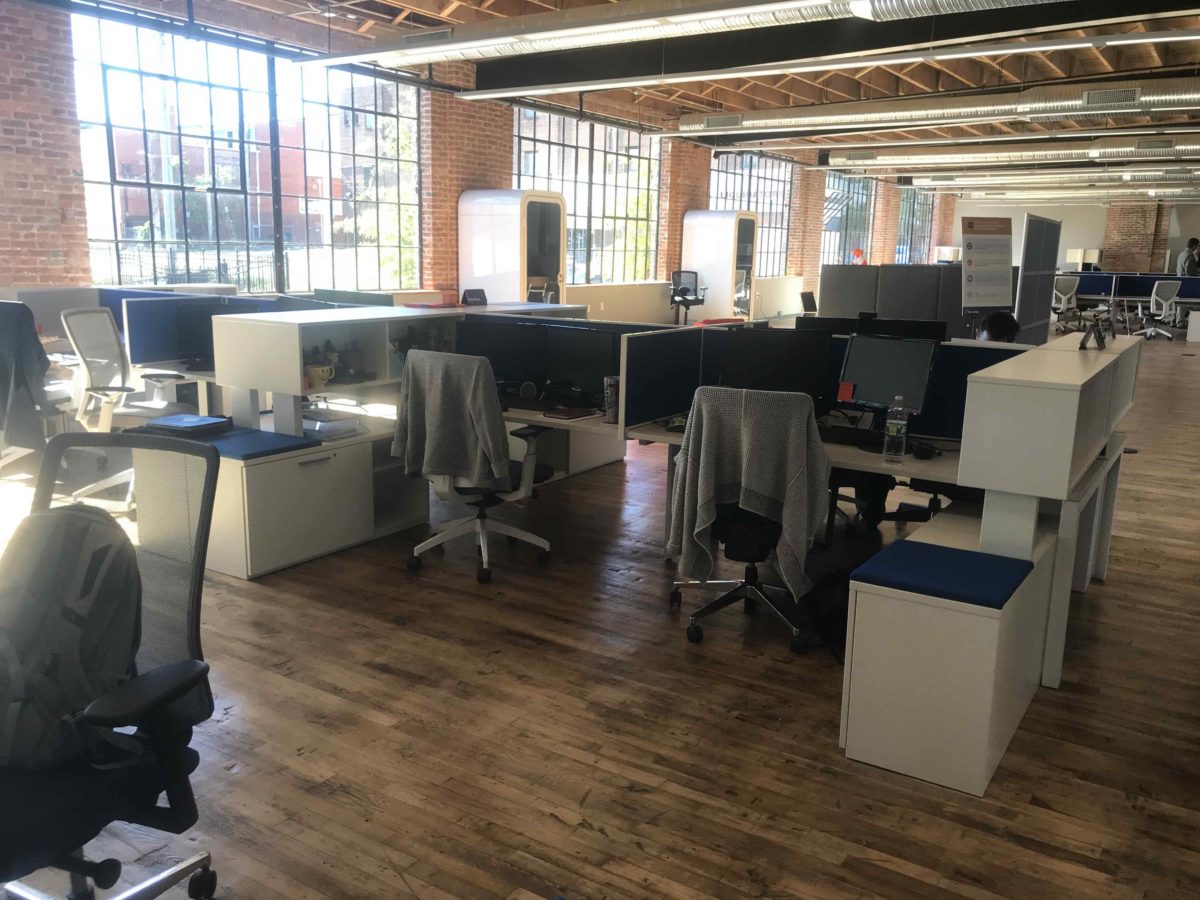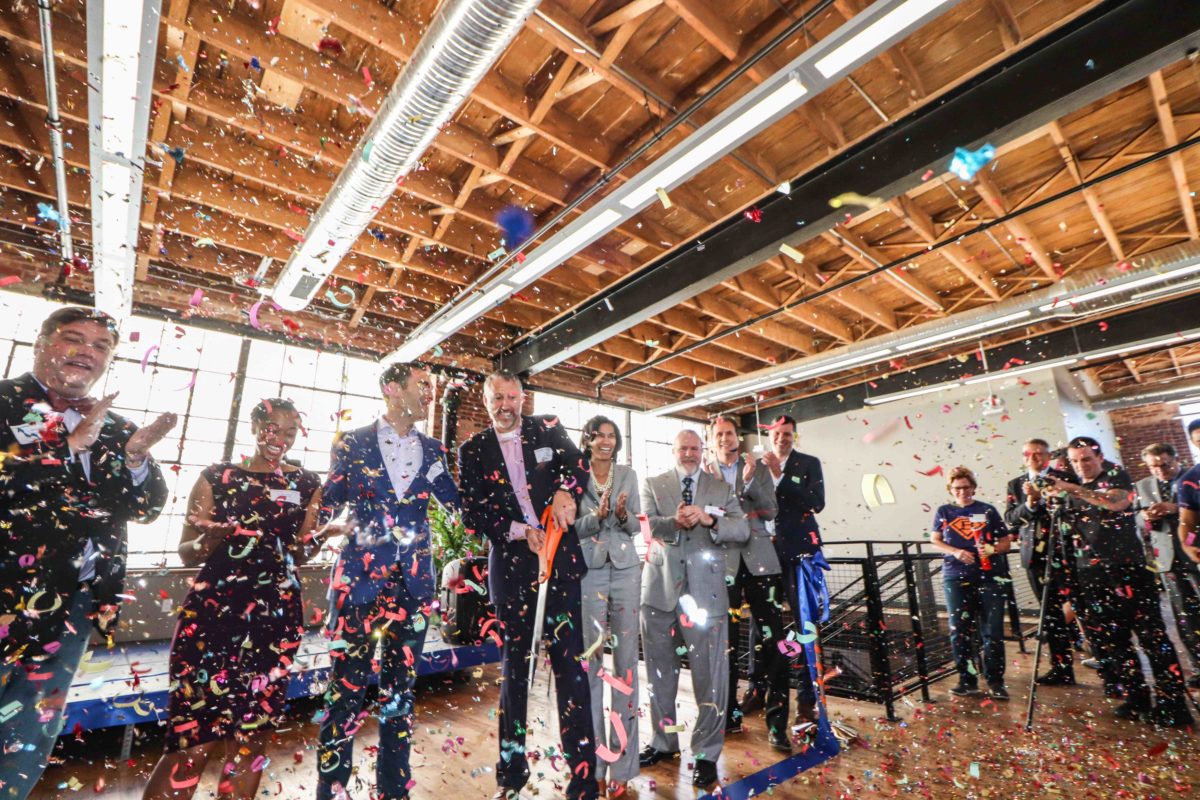A former garment factory in Highlandtown is now home to Barcoding, Inc.
After a renovation that involved a mix of preserving an old steam engine and creating a new space where employees could all collaborate on one level, the supply chain automation company cut the ribbon on the building at 3840 Bank St. on Thursday.
At a ceremony attended by City Councilmembers and representatives of the vendors that Barcoding works with to provide technology and services for the businesses moving products, CEO Jay Steinmetz said the new space represented a next step for the company that’s been growing quickly in recent years.
“The future of Barcoding begins today,” he said.
The new office also represents a commitment to Baltimore, company leaders said. In making the move from an office on Boston Street in Canton following company growth, a key requirement was remaining in the city. And since the expansion was announced, Steinmetz saw other real estate in that part of Highlandtown bought up, as well.
“This is a very visible, a very tangible sign of that investment that we’re committed to in the City of Baltimore,” said Barcoding President Shane Snyder. “If you want to make a difference in a city, live in it and work in it.”
The 21-year-old company has expanded with new business and acquisitions that brought its presence to three new offices across the country, and three in Canada.
Barcoding, Inc. announced in 2017 that it would move into the former I.C. Isaacs and Co. garment factory. Steinmetz said he was already familiar with the building, having visited the factory in a former job that stocked Boss clothing — which was owned by I.C. Isaacs.
“I didn’t realize then that I was going to be the owner of their world headquarters,” he said.
The renovation kept some of the features that nod to the building’s past, which stretches back nearly a century. That includes a steam engine that was used as the building’s furnace, and a freight elevator. While many stairs are the original wood, new staircases were built to a roof deck that will offer some space for employees to hang out. There are also conference rooms, an in-house gym and other spaces to congregate.
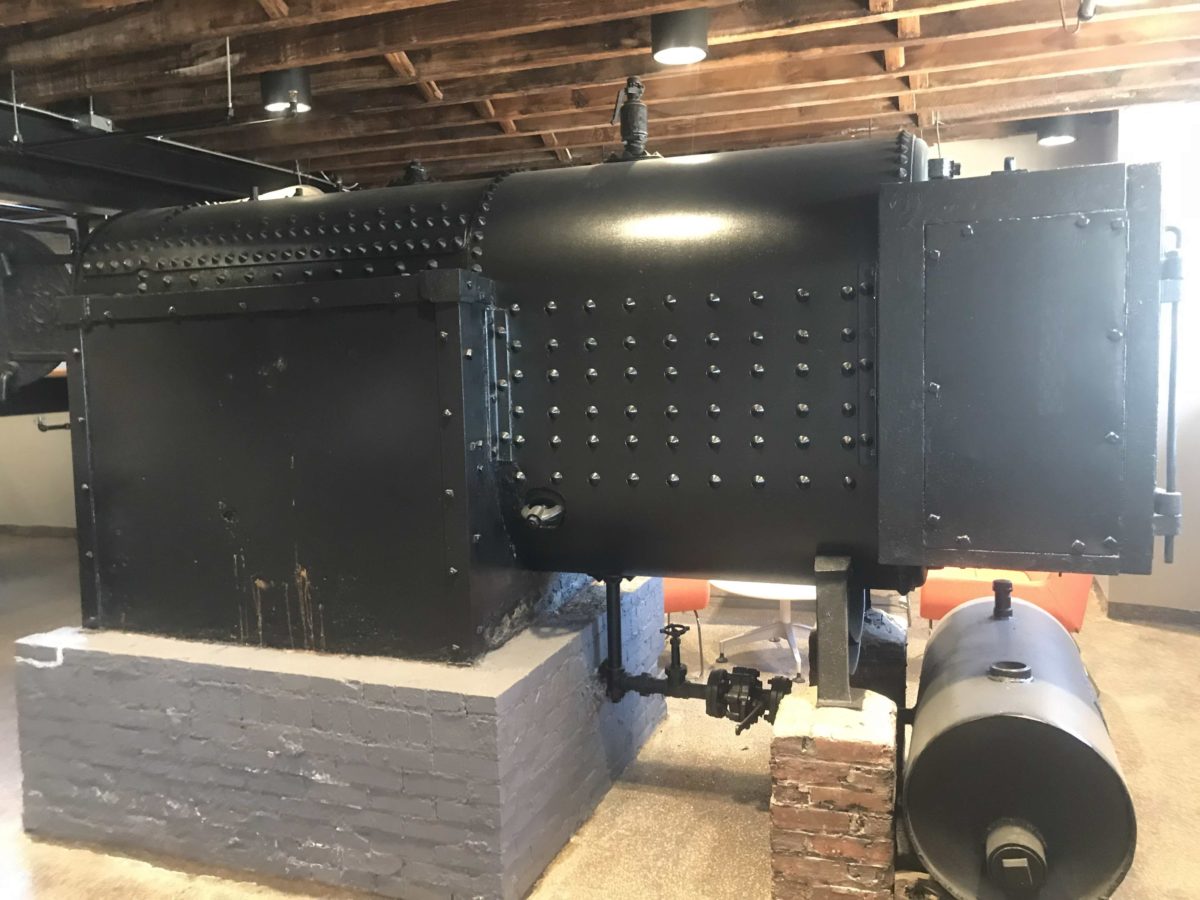
“This building is phenomenal, but never forget that it’s about the people in this building and about the people in the surrounding neighborhoods,” Snyder said.
About 75 employees will be working out of the building initially, including the support, sales, marketing, operations and finance teams.
In a shift from the two-story building on Boston Street, all employees will now be on the same level of the building.
“We are all now on a single plane,” Snyder said.
It also gives them some additional room to add to the team. If all goes according to plan, another renovation may be in the works before long: “It took us 15 years to outgrow the Boston Street building,” he said. “Our goal is to outgrow this building in three.”
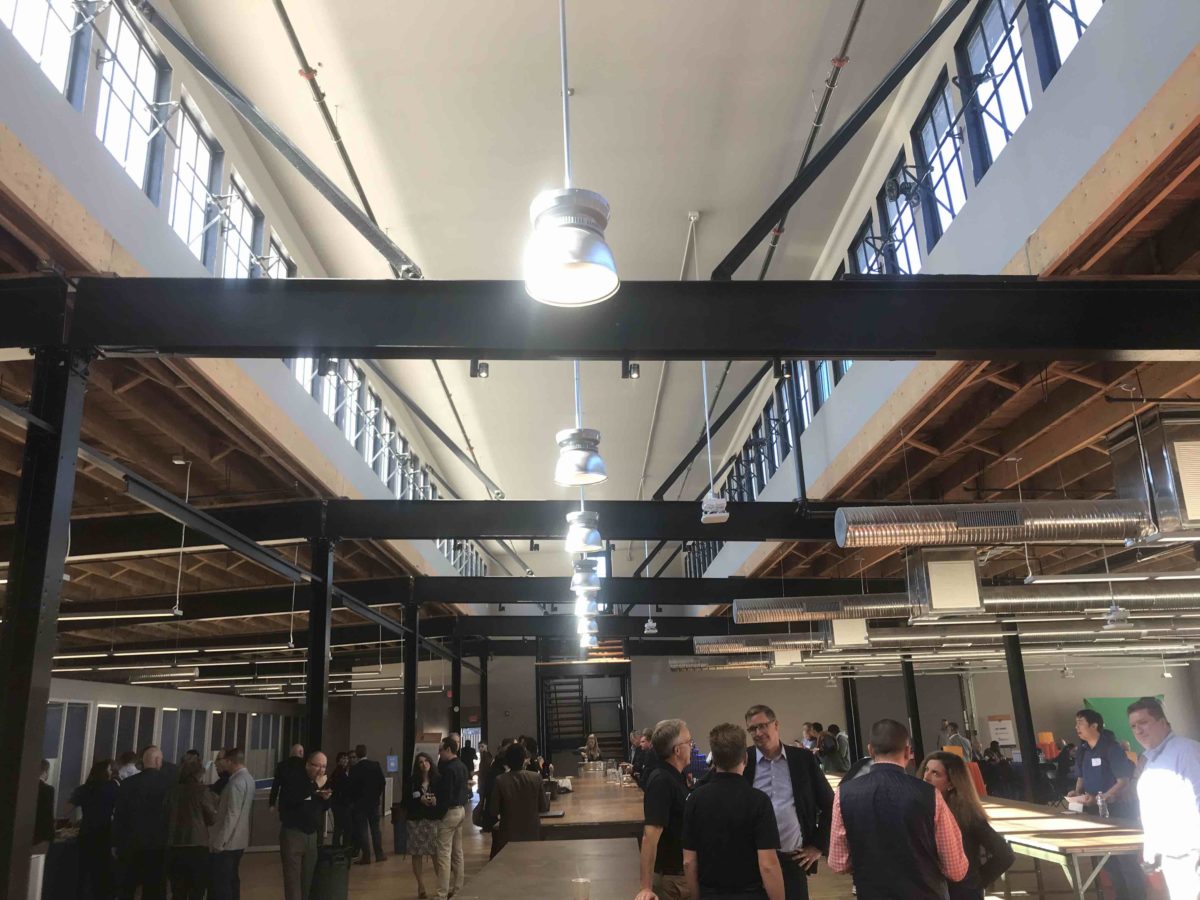
Northward expansion
It’s not the company’s first new office this year: To start 2019, Barcoding opened those three new offices in Canada.
Snyder spoke about the international expansion efforts the night before the ribbon cutting as part of a World Trade Center Institute event at Spark Baltimore.
With new offices in Houston, Chicago and Seattle coming online, the company also made the decision to expand into Canada to be closer to customers there. That resulted in opening offices in Vancouver, Toronto and Montreal — all within 30 days — and the company now has 19 employees there.
Going international represented a chance to move into a large, diverse country. But there were important considerations for international expansion. For one, Snyder said, it’s important to find banking, accounting and legal help to navigate the business community, labor laws and regulations.
Another big focus was on learning the culture.
“We made a decision as a leadership team that we weren’t going to treat it as just another state, if you will. It’s a new country. It’s a new marketplace,” he said.
This meant fully embracing the norms in that marketplace. For instance, French is used in Quebec when answering the phone, and at the top of specific forms.
“It was much more listening and a lot less, ‘This is how we do it in the States,'” he said.
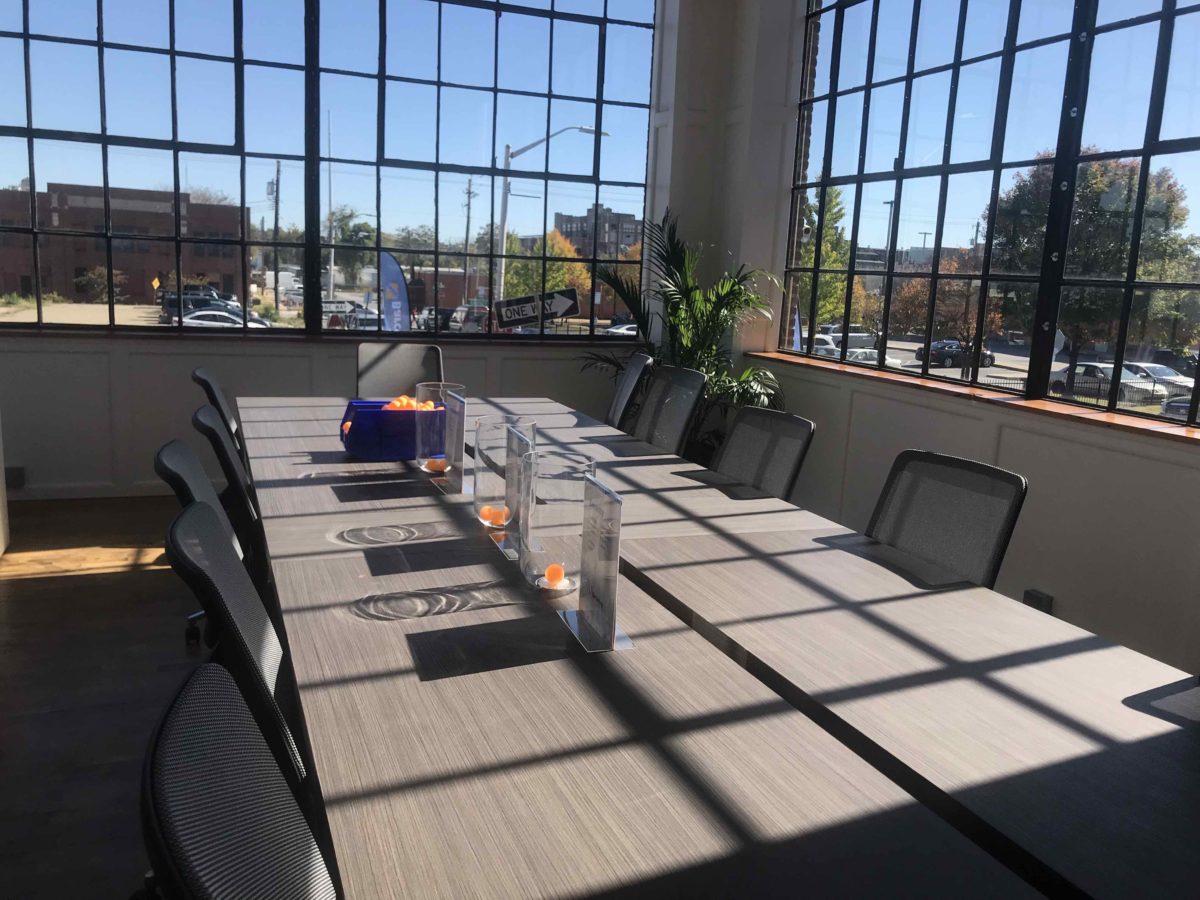
Hardware + software
Earlier this fall, Barcoding made a move to integrate software from FactoryFour for its manufacturing and logistics clients through a partnership that came together over the last year after the companies met in Baltimore.
FactoryFour’s cloud-based platform offers capabilities to gather data from hardware deployed by Barcoding, such as RFID tags. With key analytics, leaders can track progress and see key info about processes that are moving items.
The collaboration between both engineering and sales teams has a shared theme of offering new solutions in a field where some still use paper and pencil, or legacy systems.
“This is filling that gap in a very, very meaningful way for those customers so they now have visibility for what’s going into production and human capital and labor taking place on the floor throughout the production process,” said Barcoding’s Noel McKeon.
